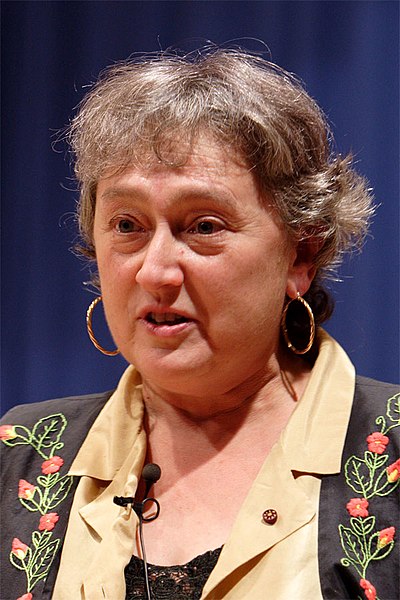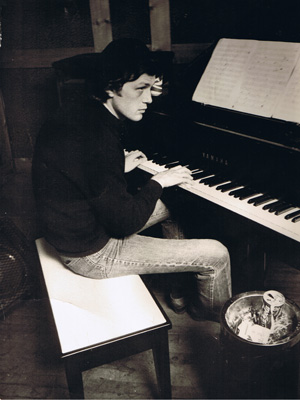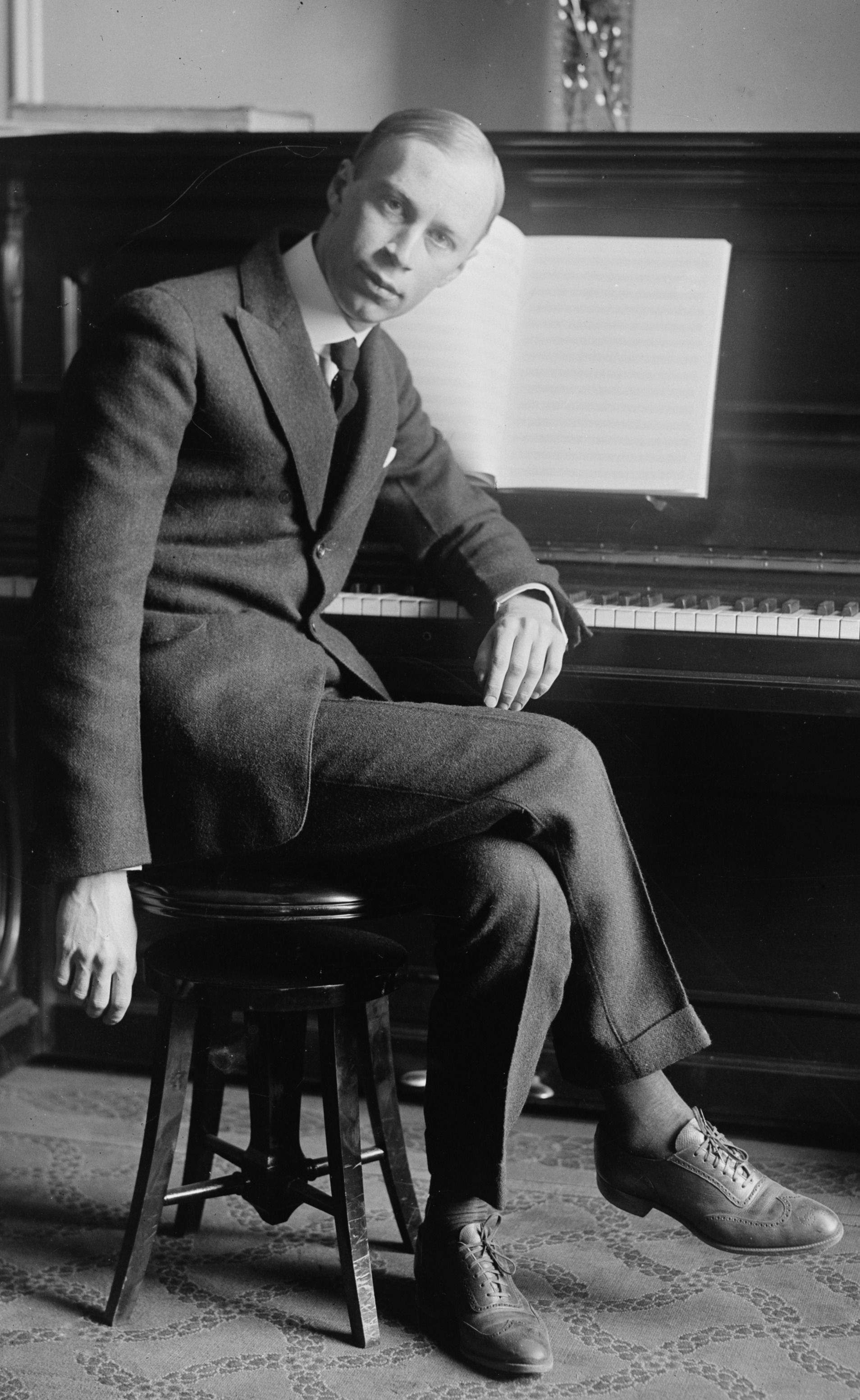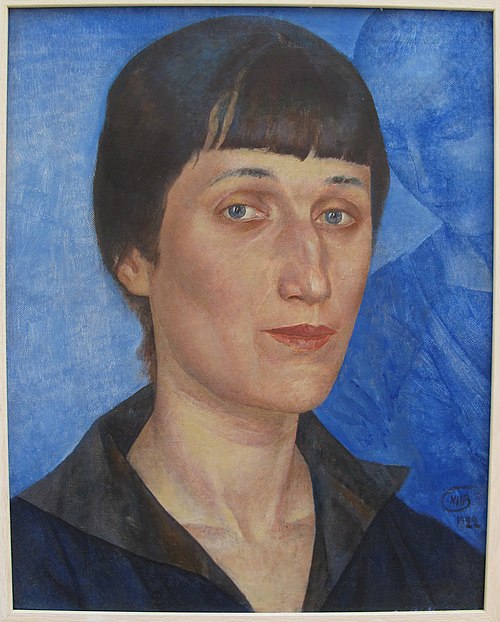quinta-feira, março 05, 2026
Lynn Margulis nasceu há 88 anos...
Postado por Fernando Martins às 08:08 0 comentários
Marcadores: Biologia, Carl Sagan, endossimbiose, hipótese de Gaia, judeus, Lynn Margulis, mitocôndria
A URSS e Estaline ordenaram o Massacre de Katyn há 86 anos...



Postado por Fernando Martins às 08:06 0 comentários
Marcadores: comunismo, Estaline, estalinismo, genocídio, Massacre de Katyn, pena de morte, Polónia, Putin
Churchill forjou a expressão Cortina de Ferro há oitenta anos...

A Cortina de Ferro, em preto
- "From Stettin in the Baltic to Trieste in the Adriatic an iron curtain has descended across the Continent. Behind that line lie all the capitals of the ancient states of Central and Eastern Europe. Warsaw, Berlin, Prague, Vienna, Budapest, Belgrade, Bucharest and Sofia; all these famous cities and the populations around them lie in what I must call the Soviet sphere, and all are subject, in one form or another, not only to Soviet influence but to a very high and in some cases increasing measure of control from Moscow."
- "De Stettin, no [mar] Báltico, até Trieste, no [mar] Adriático, uma cortina de ferro desceu sobre o continente. Atrás dessa linha estão todas as capitais dos antigos Estados da Europa Central e Oriental. Varsóvia, Berlim, Praga, Viena, Budapeste, Belgrado, Bucareste e Sofia; todas essas cidades famosas e as populações em torno delas estão no que devo chamar de esfera soviética, e todas estão sujeitas, de uma forma ou de outra, não somente à influência soviética mas também a fortes, e em certos casos crescentes, medidas de controle emitidas de Moscovo."
- no plano económico, o Bloco Ocidental buscou a reconstrução no pós-guerra com o Plano Marshall, enquanto o Bloco Oriental utilizou um modelo concorrente, o COMECON;
- No plano militar, o Bloco Ocidental constituiu a Organização do Tratado do Atlântico Norte em 1948, enquanto que o Bloco Oriental formou o Pacto de Varsóvia de 1955;
- No plano político, o Bloco Ocidental se manteve como sistema económico o capitalismo liberal, incluindo diferentes tipos de regimes políticos (desde democracias até regimes autoritários), enquanto que o Bloco Oriental adotou o modelo do socialismo e a economia planificada, geralmente sob regimes autoritários de partido único.

Postado por Fernando Martins às 08:00 0 comentários
Marcadores: cortina de ferro, NATO, Pacto de Varsóvia, Plano Marshall, Winston Churchill
Richard Bell, teclista dos Full Tilt Boogie Band, nasceu há 80 anos...
Richard Bell (Toronto, 5 de março de 1946 - Toronto, 15 de junho de 2007) foi um músico canadiano. Ficou conhecido pelos seus desempenhos ao vivo. É, talvez, melhor recordado como o pianista de Janis Joplin e a sua Full Tilt Boogie Band. Foi ainda teclista com The Band durante a década de 90.
in Wikipédia
Postado por Fernando Martins às 08:00 0 comentários
Marcadores: blues, Canadá, country, Cry baby, folk, Janis Joplin, jazz, música, piano, Richard Bell, Rock, rock psicadélico, soul
Hoje é dia de ouvir Murray Head...
Postado por Pedro Luna às 08:00 0 comentários
Marcadores: actor, Dust In The Wind, Murray Head, música, new wave, pop, Rock
Alan Clark, o teclista dos Dire Straits, celebra hoje setenta e quatro anos


Postado por Fernando Martins às 07:40 0 comentários
Marcadores: Alan Clark, blues rock, Brothers in Arms, Dire Straits, folk rock, música, Rock, Rock and Roll, teclas
Estaline, o maior genocida do século XX, morreu há setenta e três anos

| Quantidade de pessoas | Razão da morte |
|---|---|
| 1,5 milhão | Execução |
| 5 milhões | Gulags |
| 1,7 milhão | Deportados¹ |
| 1 milhão | Países ocupados² |
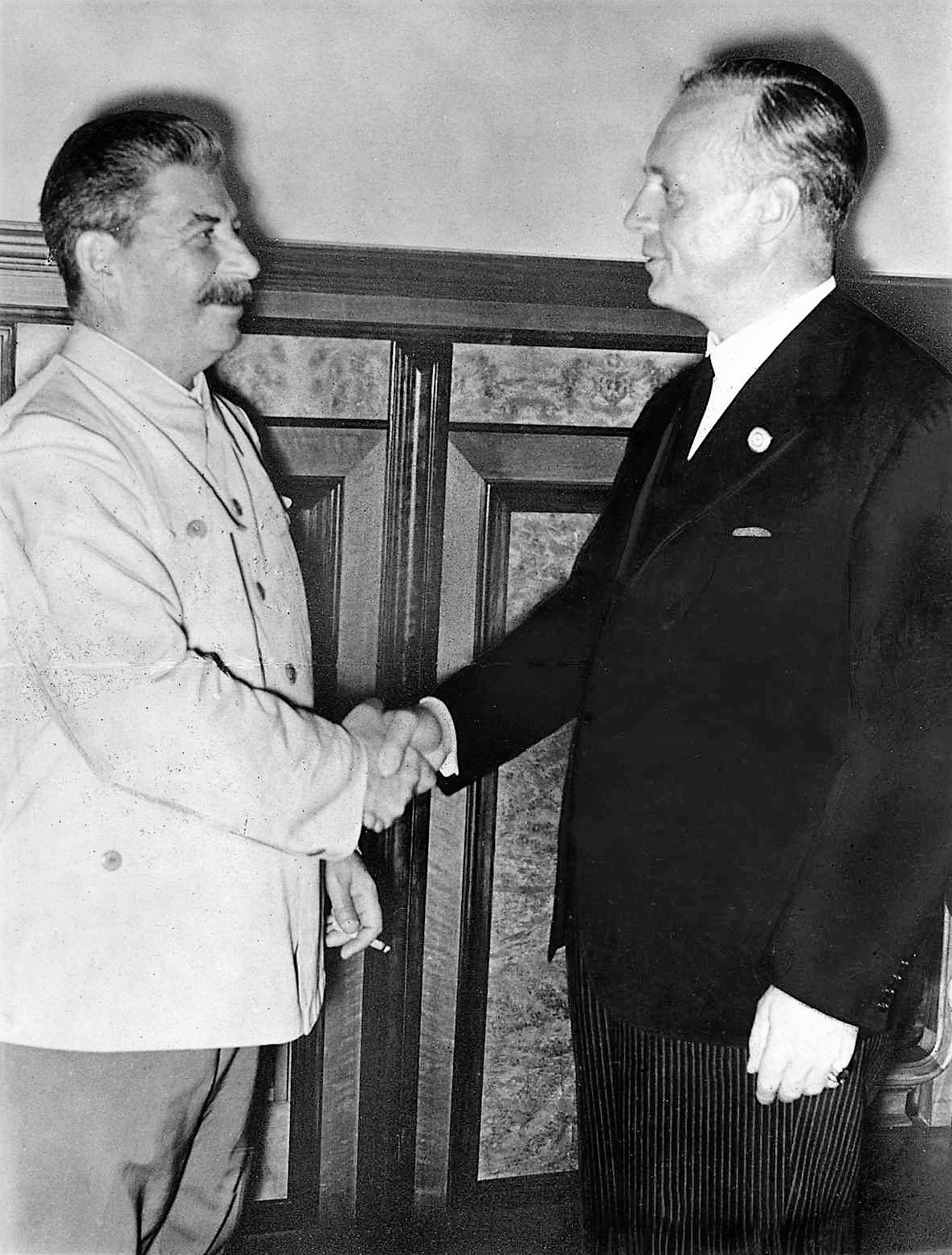
Postado por Fernando Martins às 07:30 0 comentários
Marcadores: comunistas, ditadores, Estaline, gulag, Holodomor, purga, URSS
Prokofiev morreu há 73 anos...
Postado por Fernando Martins às 07:30 0 comentários
Marcadores: ballet, Estaline, música, Pedro e o Lobo, Peter and the Wolf, Prokofiev, Rússia, Ucrânia, União Soviética
Eddy Grant faz hoje 78 anos
Eddy Grant ou Edmond Montague Grant (Plaisance, 5 de março de 1948) é um músico da Guiana. Quando era muito jovem, os seus pais emigraram para o Reino Unido, onde ele se estabeleceu. Em 1968, como guitarrista e compositor do grupo multi-racial The Equals, alcançou pela primeira vez o topo das paradas de sucesso, com a canção "Baby Come Back".
Postado por Fernando Martins às 07:08 0 comentários
Marcadores: apartheid, direitos humanos, Eddy Grant, Electric Avenue, Guiana, I don't wanna dance, música, reggae, reggae rock, The Equals
Elaine Paige - 78 anos

Elaine Paige (Barnet, 5 de março de 1948), nome artístico de Elaine Mary Bickerstaff, é uma cantora, dançarina e atriz britânica.
Atuou em diversos espetáculos musicais, entre eles Cats, de Andrew Lloyd Webber, baseado num livro infantil de T.S. Eliot. O espetáculo ficou 21 anos em cartaz em Londres e Elaine estreou no papel da felina "Grizabella" no dia 11 de maio de 1981.
Foi agraciada com a Ordem do Império Britânico em 1995.
Em 2009, Susan Boyle, durante a sua primeira audição no programa Britain's Got Talent, citou Elaine Paige como o seu ícone na música.
Em 2014, Paige celebrou os seus 50 anos no show business. Paige anunciou no seu site oficial uma turnê de "Farewell" e um novo álbum de carreira, The Ultimate Collection, para comemorar esse marco.
in Wikipédia
Postado por Fernando Martins às 07:08 0 comentários
Marcadores: actriz, Cats, Elaine Paige, Memory, música
Mark E. Smith, o vocalista da banda The Fall, nasceu há 69 anos...

Mark Edward Smith (Salford, 5 de março de 1957 - Prestwich, 24 de janeiro de 2018) foi um cantor, compositor e instrumentista britânico. Foi vocalista e único integrante que constou em todas as formações da banda The Fall, ícone do punk rock da cidade de Manchester.
Estando à frente da banda desde quando fundou, em 1976, após assistir a uma apresentação da banda Sex Pistols em Manchester. A banda sofreu constantes mudanças de formação e, por um breve período, Mark foi casado com a então guitarrista do grupo, Brix Smith. Nos seus 42 anos de existência, lançaram 32 álbuns de estúdio e vários singles e EPs. O último disco lançado pela banda foi New Facts Emerge, de 2017.
Mark sofria problemas respiratórios, tendo que ser hospitalizado em 2017, cancelando uma turnê nos Estados Unidos. Um dos trabalhos realizados nos últimos anos foi uma participação, em 2010, no projeto de Damon Albarn, dos Blur, o grupo virtual Gorillaz.
in Wikipédia
Postado por Fernando Martins às 06:09 0 comentários
Marcadores: art punk, Hit The North, Mark E. Smith, música, Pós-punk, punk rock, Rock alternativo, rock experimental, The Fall
Andy Gibb nasceu há 68 anos...

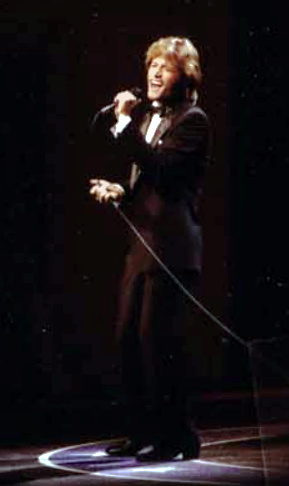
Postado por Fernando Martins às 06:08 0 comentários
Marcadores: Andy Gibb, Bee Gees, disco, I Just Want to Be Your Everything, música, pop, Reino Unido, Rock
O poeta Afonso Duarte morreu há 68 anos...
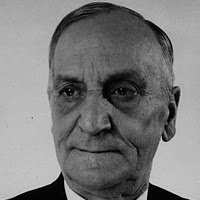
Um sonhar-me distante, um longe incrível
É agora o meu estado: Eu sonho o Espaço
Que se fixa no mundo ao invisível
Como se o mundo andasse por meu braço,
Existo além: Sou o animal temível
De Jesus com o mundo-Deus na mão.
Sou para além do mundo concebível
Onde morre e começa a criação.
Eu, homem, sondo e meço o Infinito;
Sou corpo e espírito, esse corpo oculto,
E é só na mão de Deus que ressuscito.
E chamam a isto humana condição ...
Um nada, e tudo: — Vivo e me sepulto
Dentro e fora do próprio coração.
in Ossadas (1947) - Afonso Duarte
Postado por Fernando Martins às 06:08 0 comentários
Marcadores: Afonso Duarte, Ereira, poesia
Anna Akhmatova morreu há sessenta anos...
Do ciclo os mistérios do ofício
Não me importa o exército das odes,
Nem o jogo torneado da elegia.
Nos versos, tudo é fora de propósito.
Não como entre as pessoas, – me dizia.
Saibam vocês, o verso, é do monturo
Que eles se alenta, sem vexame disso,
Como um dente-de-leão pegado ao muro,
Anserina, bardana, erva-de-lixo.
Grito de zanga, um travo de alcatrão,
Um bolor misterioso que esverdinha…
E eis o verso, furor e mansidão,
Para alegria de vocês e minha.
Anna Akhmatova
Postado por Fernando Martins às 06:00 0 comentários
Marcadores: Anna Akhmatova, estalinismo, poesia, Rússia, Ucrânia, URSS
Hoje é dia de recordar os Mamonas Assassinas...
Postado por Pedro Luna às 05:50 0 comentários
Marcadores: Brasil, Dinho, Humor, Mamonas Assassinas, música, Robocop Gay
Saudades de John Belushi...
Postado por Pedro Luna às 04:40 0 comentários
Marcadores: actor, blues, cinema, John Belushi, música, overdose, Sweet Home Chicago, The Blues Brothers
Hoje é dia de cantar poesia de Pedro Homem de Melo...
Talvez que eu morra na praia,
Cercado, em pérfido banho,
Por toda a espuma da praia,
Como um pastor que desmaia
No meio do seu rebanho…
Talvez que eu morra na rua
- Ínvia por mim de repente –
Em noite fria, sem Lua,
Irmão das pedras da rua
Pisadas por toda a gente!
Talvez que eu morra entre grades,
No meio duma prisão
E que o mundo, além das grades,
Venha esquecer as saudades
Que roem o meu coração.
Talvez que eu morra dum tiro,
Castigo de algum desejo.
E que, à mercê desse tiro,
O meu último suspiro
Seja o meu primeiro beijo…
Talvez que eu morra no leito,
Onde a morte é natural,
As mãos em cruz sobre o peito…
Das mãos de Deus tudo aceito.
- Mas que eu morra em Portugal!
Pedro Homem de Melo
Postado por Fernando Martins às 04:20 0 comentários
Marcadores: Catarina Wallestein, Fado, folclore, Minho, música, Pedro Homem de Melo, poesia, Prece
O Massacre de Boston foi há 256 anos
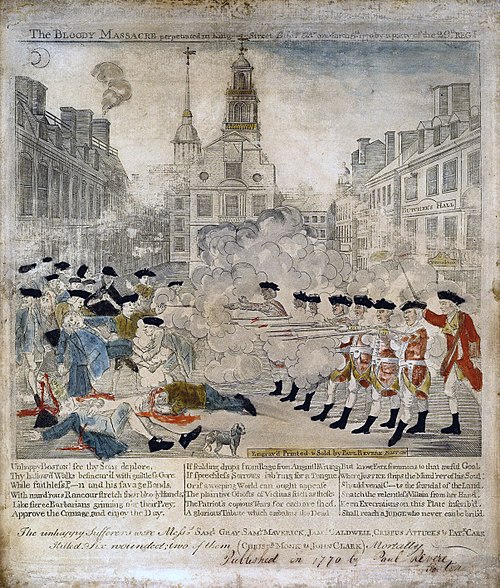
As tropas britânicas estavam estacionadas em Boston, capital da Província da Baía de Massachusetts, desde 1768, com o objetivo de proteger e apoiar os oficiais nomeados pela coroa, e tentando fazer cumprir a legislação parlamentar, muito impopular entre os colonos. Por entre a crescente tensão nas relações entre a população e os soldados, um pequeno grupo de pessoas formou-se em redor de uma sentinela britânica, a qual foi sujeita a ofensas verbais e perseguições. A sentinela acabou por receber ajuda de outros oito soldados, os quais receberam ameaças verbais e foram atingidos por objetos atirados pelos civis. Dispararam contra a multidão, sem ordens prévias para o fazer, matando três pessoas e ferindo outras; duas delas acabariam por morrer dos ferimentos.
Postado por Fernando Martins às 02:56 0 comentários
Marcadores: Massacre de Boston, Revolução Americana
Um aldrabão e pseudo-cientista chamado Franz Anton Mesmer morreu há duzentos e onze anos
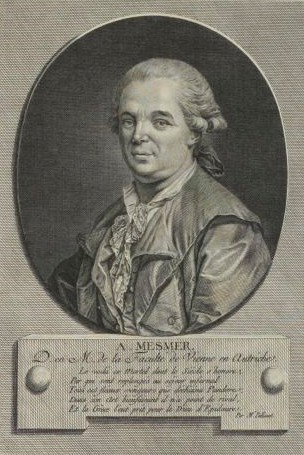
Em 1775, com o fraco acolhimento dado à sua descoberta, Mesmer determinou-se a nada mais a divulgá-la publicamente em Viena. Viajou para diversos países da Europa anunciando a sua descoberta. Visitou a Suábia, a Baviera, a Suíça e a Hungria, entre outros países. Publicou uma Carta ao povo de Frankfurt, que representa uma importante fase do desenvolvimento de sua teoria. Pela primeira vez definiu o magnetismo animal como sendo a capacidade de um indivíduo em causar efeitos similares ao magnetismo mineral em outra pessoa. Em 5 de janeiro, publicou em jornais e panfletos uma Carta a um médico estrangeiro, esclarecendo a terapia do magnetismo animal. Foi primeiramente endereçada ao médico Johann Christoph Unzer, de Altona. Em Munique, a 28 de novembro, foi aceito como membro da Academia do Eleitorado da Baviera.
Em 1776, Mesmer deixou de fazer uso do íman como simples condutor do magnetismo animal, para evitar mal-entendidos por parte dos médicos e físicos. Continuou a usar água, garrafas e barras de ferro. Publicou Cartas sobre a cura magnética, esclarecendo a sua tese de doutoramento, e enviou-as, como divulgação, a alguns médicos.
No ano seguinte, Mesmer aceitou como paciente a famosa pianista Maria Theresia Paradis, 'curando' a sua cegueira e gerando controvérsias.
Postado por Fernando Martins às 02:11 0 comentários
Marcadores: aldrabices, Franz Anton Mesmer, Medicina, mesmerismo
